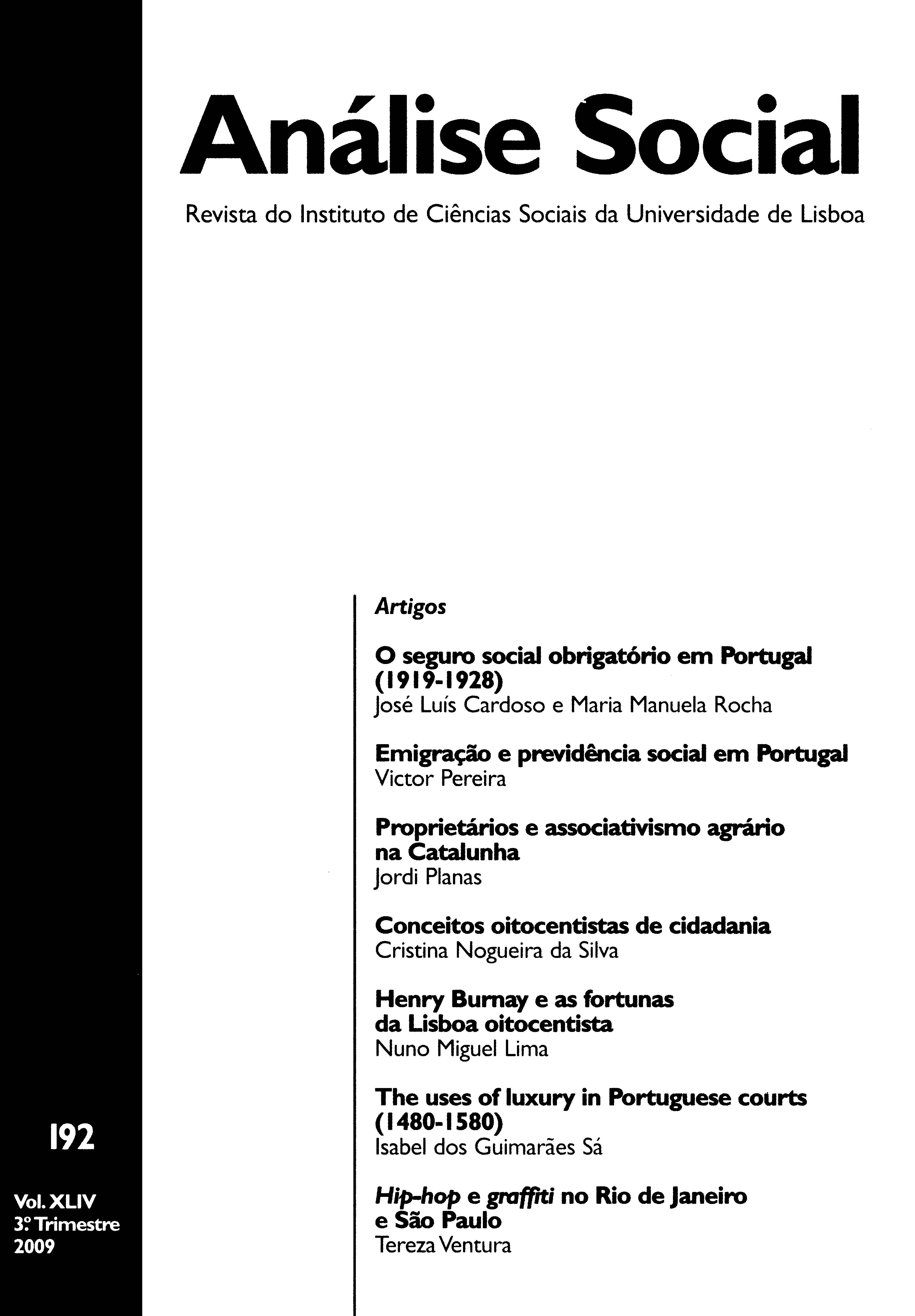The compulsory social insurance system in Portugal (1919-1928): scope and limits of state intervention
DOI:
https://doi.org/10.31447/AS00032573.2009192.01Keywords:
social insurance, mutual associations, corporatism, welfare stateAbstract
At the end of World War I, new legislation on compulsory social insurance was introduced in Portugal. It is commonly accepted that the outcome of this experience of the Portuguese First Republic was weak. Taking into account the ambitious legal framework and the main activities of the institutions in charge of the implementation of the system of social insurance, this article seeks to explain the very foundations of the system put forward by the mutual associations in the last decade of the nineteenth century and first decades of the twentieth century. It is also the aim of this article to discuss the reasons for the opposition raised by the corporatist movement in the 1930s, in the early beginnings of the Estado Novo regime, in order to explain whether the motives for the failure of the creation of an efficient system of social insurance were maintained.



